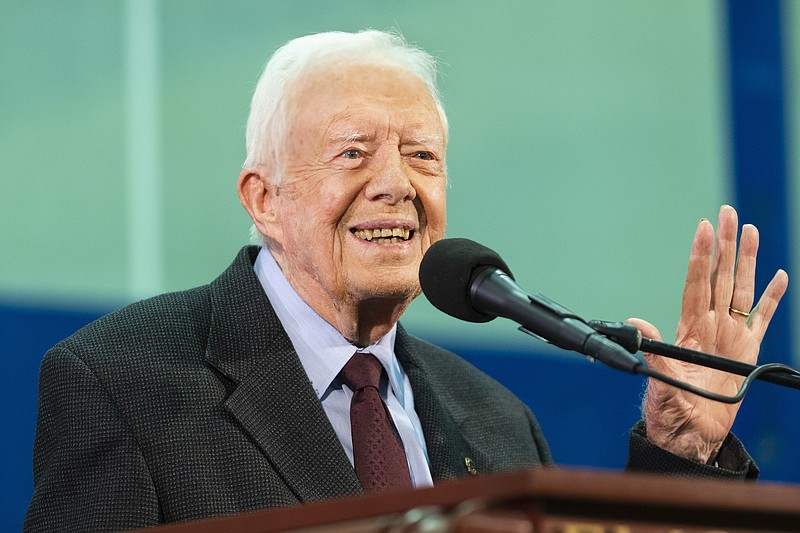A majority of Democrats in a recent Monmouth University poll said Barack Obama was a better president than George Washington, and a majority of Republicans in an earlier Economist/YouGov Poll said Donald Trump is a better president than Abraham Lincoln.
"There is a combination of factors at work when you ask a question like this," Patrick Murray, director of the Monmouth University Polling Institute, said, as quoted last week in the Washington Times. "Democrats may be more likely than Republicans to be influenced by recency bias, valuing what they are familiar with over historical opinion.
"It's a fun question to ask, but I'm not sure what it means."
What the two polls mean is that voters on both sides of the aisle didn't take the question seriously, don't have a sense of perspective, don't have a solid knowledge of history, or perhaps all three.
In the days before the 24/7 news cycle, polls of presidential "greatness" or "effectiveness" were perhaps once-a-decade academic exercises in which historians rated the chief executives. Oh, there were differences of opinion then, too, but they were more around whether Warren Harding or James Buchanan should be rated the worst president and how their top 10 would stack up behind Washington and Lincoln (or Lincoln and Washington).
Since then, the more frequent rankings have been influenced by current events, the temperature of the electorate, or who's in and who's out.
For instance, Republican Ronald Reagan was ranked 26th of the 42 presidents in 1996, the year in which Democrat Bill Clinton was re-elected and before his impeachment for perjury. Yet, he's since been as high as sixth before settling somewhere around 10th.
Democrat Jimmy Carter, defeated for re-election and widely considered a failed president when he left office in 1981, was ranked as low as 34th out of 43 presidents in 2002 but rose as high as 18th only eight years later - after Democrat Obama was elected - before being rated 26th in four straight polls. His stability, undoubtedly, has come from being the longest living president and from the charitable works he has done even into his old age.
Back-to-back post-WWII Presidents Harry Truman and Dwight Eisenhower have had different existences in the polls since they left office. Truman has been remarkably consistent, ranked from fifth to ninth, while Eisenhower began at 21st a year after his second term ended in 1961 but rose as high as fifth in 2017.
As far as Obama and Trump go, neither one is likely to wind up in the pantheon of greatest presidents. Washington, over whom Obama was ranked by Democrats, was our first president and is usually listed first, second or third in rankings. Obama's recent ratings, outside of the meaningless ones taken while he was still serving, are heavily affected by being the first black president and because his successor, Trump, is so unpopular among those of his party because of his upset win in the 2016 presidential race.
Trump, obviously, only has been ranked while being president, and his low rating in the polls is in part a measure of the white hot personal hatred Democrats have for him. Lincoln, with whom the current president was measured in the Economist/YouGov Poll, has been ranked as the greatest president in a majority of 20 polls taken since 1948.
As years bring perspective, Obama's status as the first black president will not lift him over Washington, who set the precedent for future chief executives, even among Democrats, while Trump, even if he is elected to a second term, could never reach the status of a Lincoln, who presided over a divided country during the Civil War and freed the slaves, even in the minds of Republicans.
We believe the study of presidents, though, has much to teach us, from the writings and policies of the first five presidents setting the pace for the country, to the era of weak presidents for some 25 years before and after the Civil War, to the era of presidents when the United States began to emerge as a world power, to the era of the modern presidency.
However, today, ranking presidents has become almost an annual parlor game, and polling about whether Obama and Trump were better than Washington and Lincoln is more about clicks and publicity for the polling agency.
In reality, some perspective is necessary to judge the effectiveness and relative greatness of presidents. Did they have the trust of the people? Did their policies resonate? Did they work well with Congress? Did their decisions help change history?
Whether a partisan group of people might give them temporary props in a popularity contest, though, is next to meaningless.
